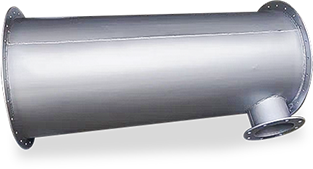
Contract negotiation is a crucial aspect of any business relationship. As an operations manager, you are responsible for ensuring that your company has the best possible terms and conditions in place before signing any legal agreements. In this blog post, we will discuss contract negotiation tips and strategies to help you navigate the complex process of negotiating contracts with vendors, suppliers, and partners. Specifically, we will focus on the key elements of contract negotiation, such as performance metrics and compliance requirements, and provide a comprehensive checklist to help you stay organized throughout the negotiation process.
The Contract Negotiation Process
The contract negotiation process involves several key steps, including:
- Establishing goals and objectives: Before entering into any contract negotiation, it is important to establish clear goals and objectives. These should be specific, measurable, achievable, relevant, and time-bound.
- Conducting cost analysis: Determine the total cost of ownership of the product or service being offered, and consider factors such as maintenance, support, and training costs.
- Identifying risks and mitigating them: Identify potential risks associated with the contract and develop a risk management plan to mitigate them.
- Building bargaining power: Leverage your position by gathering relevant information, such as market trends and competitor pricing.
- Negotiating terms and conditions: Once you have established your goals and objectives, conducted a cost analysis, and mitigated potential risks, you are ready to negotiate the terms and conditions of the contract.
Contract Negotiation Tips and Strategies
To help you negotiate the best possible contract, we have compiled a list of tips and strategies:
- Know your legal rights: Understand the basics of contract law and the legal implications of the terms and conditions being offered.
- Maintain a collaborative approach: Foster a collaborative approach to contract negotiation to establish a mutually beneficial agreement.
- Use objective performance metrics: Develop objective performance metrics to measure the quality and effectiveness of the product or service being offered.
- Understand compliance requirements: Be aware of any compliance requirements and ensure that the contract complies with applicable laws and regulations.
- Develop a dispute resolution plan: Develop a dispute resolution plan to address any potential conflicts that may arise.
- Address confidentiality and intellectual property rights: Address confidentiality and intellectual property rights to protect your company’s proprietary information.
- Include termination clauses: Include termination clauses to provide an exit strategy in case the vendor fails to meet performance metrics or compliance requirements.
- Limit liability: Limit liability through indemnification and warranties and guarantees.
- Consider force majeure: Consider force majeure clauses to account for unexpected events that may affect the vendor’s ability to perform.
- Address change orders: Address change orders to ensure that any changes to the scope of work are agreed upon and documented.
Contract Negotiation Checklist
To ensure that you stay organized throughout the negotiation process, we have developed a comprehensive checklist:
- Establish goals and objectives.
- Conduct cost analysis.
- Identify risks and mitigate them.
- Build bargaining power.
- Negotiate terms and conditions.
- Understand legal implications.
- Foster a collaborative approach.
- Develop objective performance metrics.
- Address compliance requirements.
- Develop a dispute resolution plan.
- Address confidentiality and intellectual property rights.
- Include termination clauses.
- Limit liability.
- Consider force majeure.
- Address change orders.
Governing law and jurisdiction and non-compete clauses are also important elements of contract negotiation that should be considered. By following these tips and strategies and using this checklist, you can negotiate contracts that meet your company’s needs and establish strong business relationships with your vendors, suppliers, and partners.










